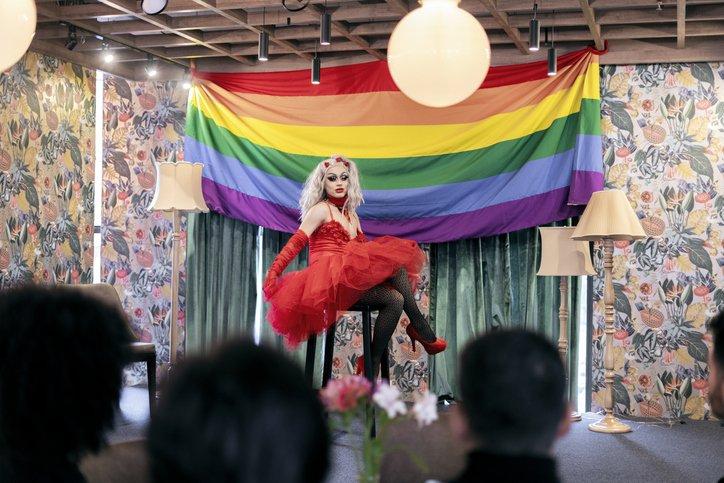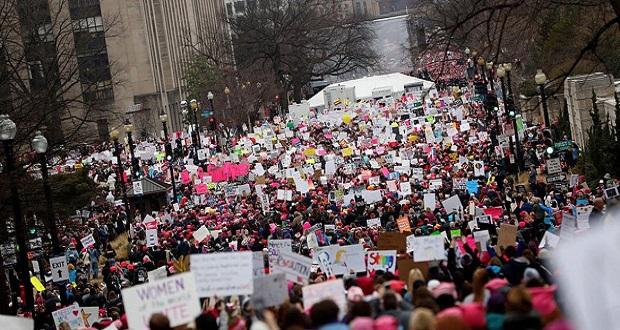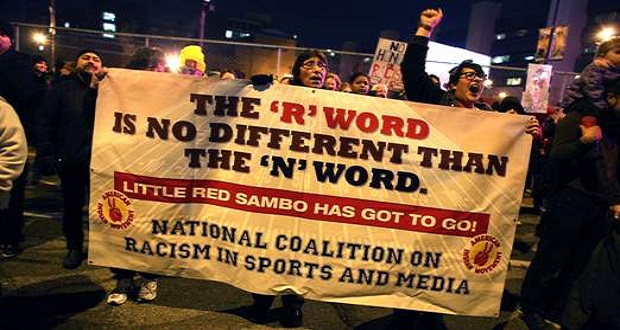
Content warning: The bullet points near the beginning of this post reference mental health challenges experienced by, and violence toward, queer communities.
It’s Pride Month, and extremist lawmakers in the U.S. are in the midst of advancing record numbers of anti-LGBTQ+ bills across the country. This barrage of legislation, intended to stoke transphobic and homophobic fear to drum up political support, is not just unconstitutional, it is also directly contrary to the historic conservative claim to prefer “small government” that stays out of people’s business. In the face of these “culture wars,” it is critical that we focus on the reality that this legislation has real, human consequences and must be rejected and organized against at every level.
Queer communities are intimately acquainted with joy, grief, pain, care, and resilience born from our lived experiences of being minoritized and marginalized. We must uplift that queer people are so much more than our trauma and marginalization; as our humanity is questioned and attacked at every turn, this bears repeating. Also, our trauma is real. I’ll invite you to reflect on the following sobering statistics:
- Queer youth are more than four times as likely to attempt suicide than their peers; queer youth of color are disproportionately likely to attempt suicide compared to their white peers.
- Over one third of queer youth have been physically threatened or harmed and 52 percent have been bullied electronically or in person. As last year’s shooting at Club Q among other tragedies targeting queer communities reminds us, queer people are more likely to become victims of gun violence.
- Nearly one in five queer youth has been threatened with or subjected to conversion therapy, which has been thoroughly debunked as a psychological intervention and associated with many adverse outcomes.
Several factors have been identified as positively impacting queer youth and reducing their risk for adverse mental health experiences:
- Having social support from family or other accepting adults in their lives
- Involvement in affirming extracurricular activities
- Respect for and legal recognition of one’s pronouns
- Access to gender-affirming bathrooms and care
- Seeing their identities positively represented in the media
Each of these safety factors is under direct attack from recently advanced legislation, with devastating consequences. While many of the bills are being introduced under the guise of “protecting minors,” they are doing anything but. This claim is predicated on the idea that youth must be protected from the queer community — a harmful narrative with a long history — and willfully ignores the reality that young people have lived experiences as members of this marginalized community in critical developmental stages of their lives.
A bright spot (as we at The Winters Group like to call it, a Win for Justice!) arose this week when Trump-appointed U.S. District Court judge Thomas Parker ruled Tennessee’s anti-drag show law unconstitutional. I thank him for his service in upholding truths our democracy claims to view as self-evident.
Having personally been a part of queer communities where drag is a beloved, life-affirming form of self-expression, I can attest to the healing power of this art form and community. Importantly, drag has its origins in communities of queer femmes of color, who have always been at the center of resistance movements that have benefitted everyone’s freedom and safety. If you are not familiar with the ways queer people have shown and continue to show up for one another in community care and chosen family, I encourage you to give the show Pose a watch; it centers around these communities in 1980s New York City in a way that captures sorrows and fear of the AIDS era, as well as joy, love, and care that coexisted.
One thing that is almost laughable about recent drag bans and attempts at them is the idea that drag can be clearly defined or boxed in. Part of the very joy and beauty of this art form is the bending and blending of reality, expression, identity, performance, and lived experience. Some drag performers I know adopt elements of their drag personas throughout day-to-day life, such that they are “impersonating” no one and rather expressing their truest selves. Likewise, many actors and performers who are not drag artists embody elements cited in drag ban bills as a part of their routine work. Enforcing such bans would be an effort as futile as it is dangerous.
Drag is a critical form of self-expression.
Drag is joy, grief, playfulness, curiosity, laughter, adventure, experimentation, pride, exuberance.
Drag has saved lives.
Drag is hurting no one; those who do not wish to be involved in it are free to devote their time to anything else.
When volunteers with rainbow umbrellas are shielding children from strangers screaming at them, you have to wonder how anyone could think that the “wrong” party in this situation are the artists.
This Pride Month, as we navigate the ongoing overreach and moral panic being harmfully stoked by a major political party to court votes, consider what we all lose when freedom of expression is restricted. Consider how you will respond in support of freedom and acceptance of marginalized people and communities if this topic comes up in your personal spheres. Better yet, don’t wait for this — speak up proactively about the harm anti-LGBTQ+ and liberty-restricting legislation is causing, and why we must support candidates committed to leaving these forms of violence and repression forever in the past.
This post is dedicated to Ari Harms, whose brilliant art and work for inclusion and justice in his local community continues to foster hope and possibility for a brighter future. I am grateful for his mentorship, care, and hope during frightening times.


















